Research Projects
The Translational Neuroengineering Lab at UC San Diego conducts interdisciplinary research that integrates
domain-specific knowledge from the fields of basic neuroscience, systems engineering, signal processing, and
machine learning. The projects presented below are actively being pursued, and are grouped by their larger themes.
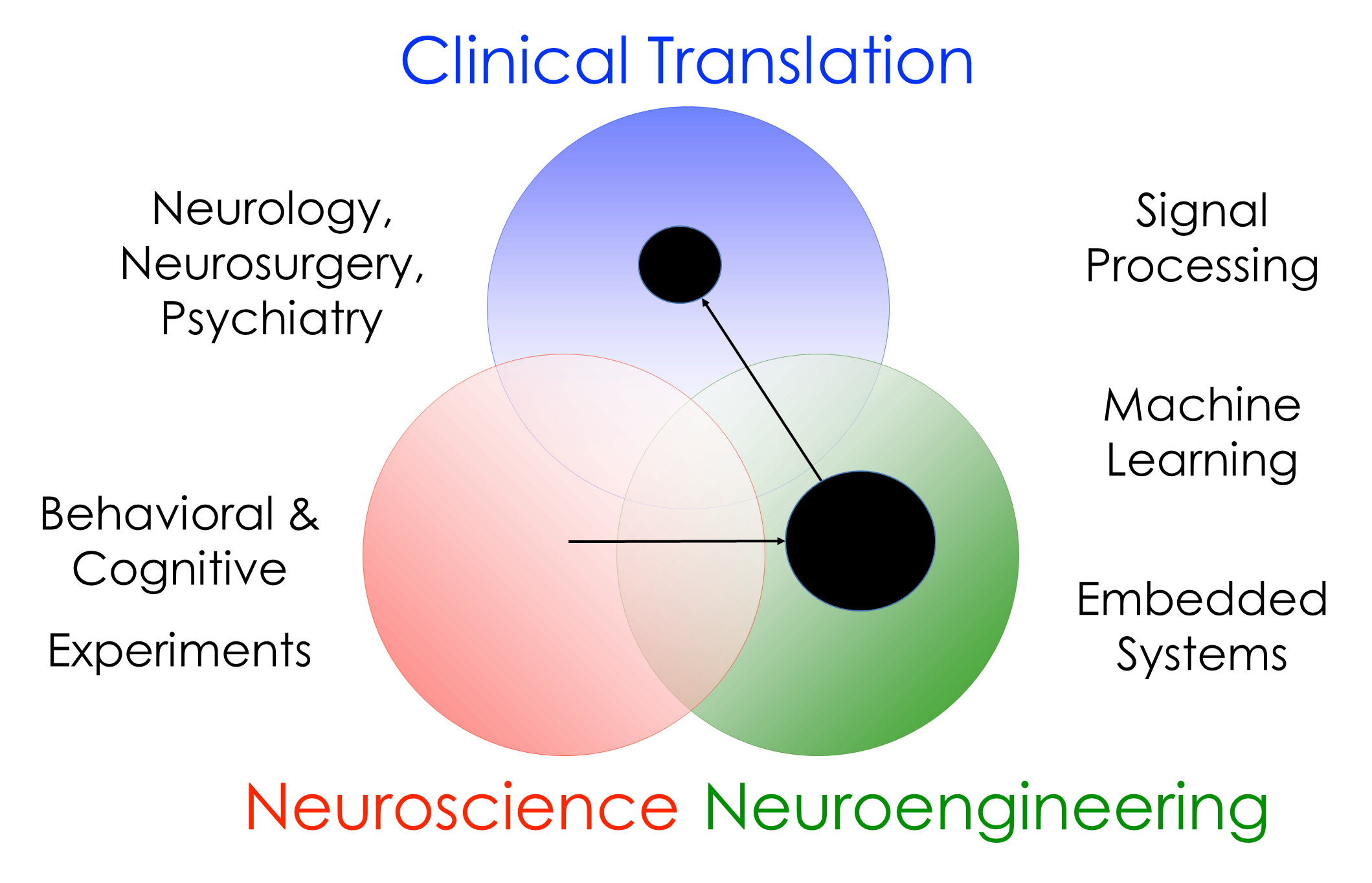
Active Projects
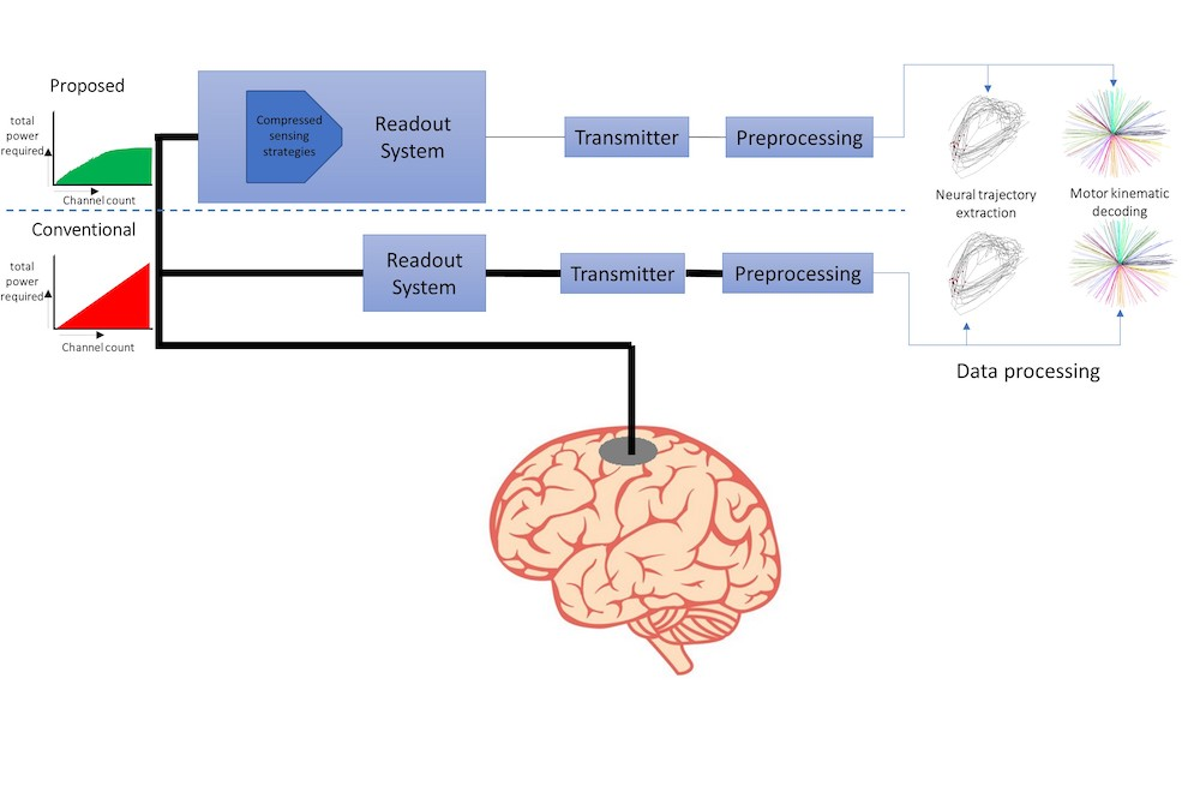
Neuron Channel Compression
Abdullah AThe number of channels in high density electrodes continue to grow exponentially over the years. With current architecture it is bottlenecked due to heat generation and power requirement. This project aims to look into developing channel compression methods in order to decrease the output dimensionality without dropping channels or losing information. Methods are built with the objective of retaining latent neural dynamics.
Keywords: Latent dynamics, neural prosthesis, factor analysis, compression
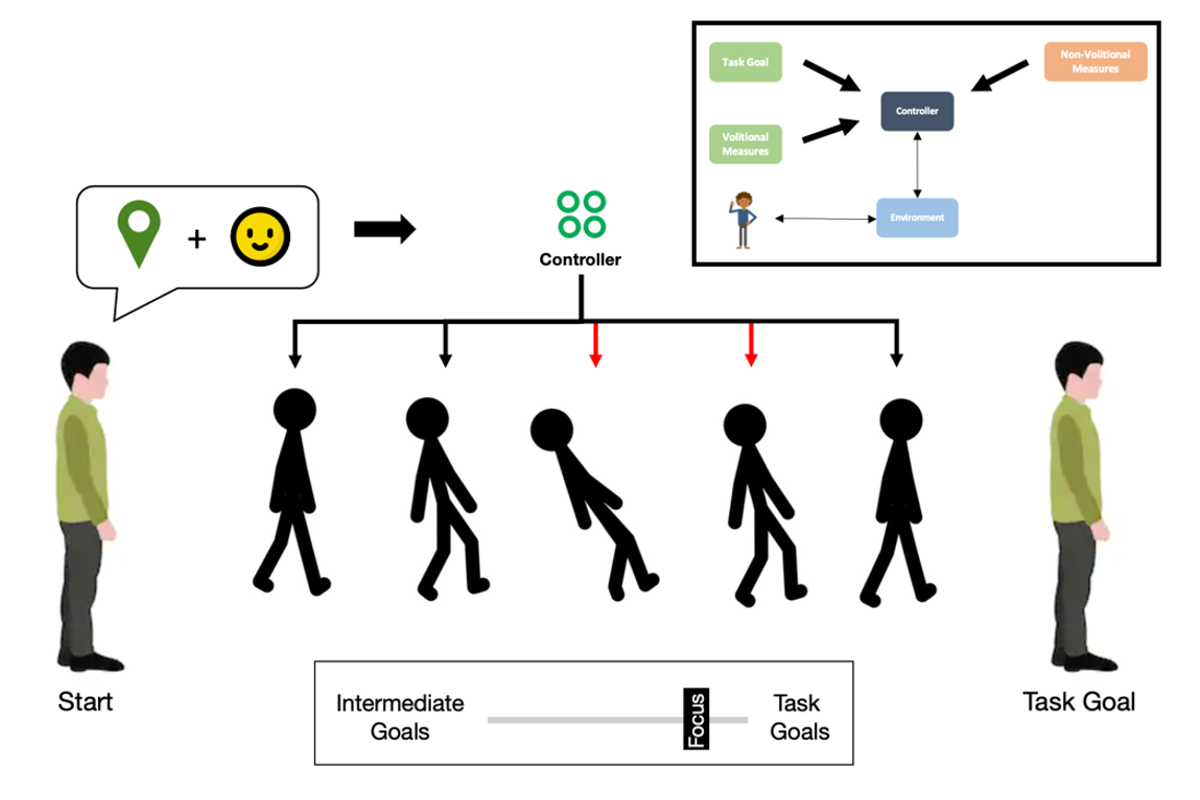
Non-Volitional Neural Prostheses
Aashish P, Sophia HCurrent high-performance prostheses map neural responses to volitional movement commands, such as the intended movements of a limb or of a computer cursor. Here we are exploring the use of non-volitional neural responses as modulatory input to intelligent controllers. We leverage recordings from sEEG/ECoG in clinical subjects engaging in various games/tasks and apply machine learning techniques to characterize significant non-volitional neural responses.
Keywords: sEEG, EEG, 2D game development, emotion detection, limbic signal detection
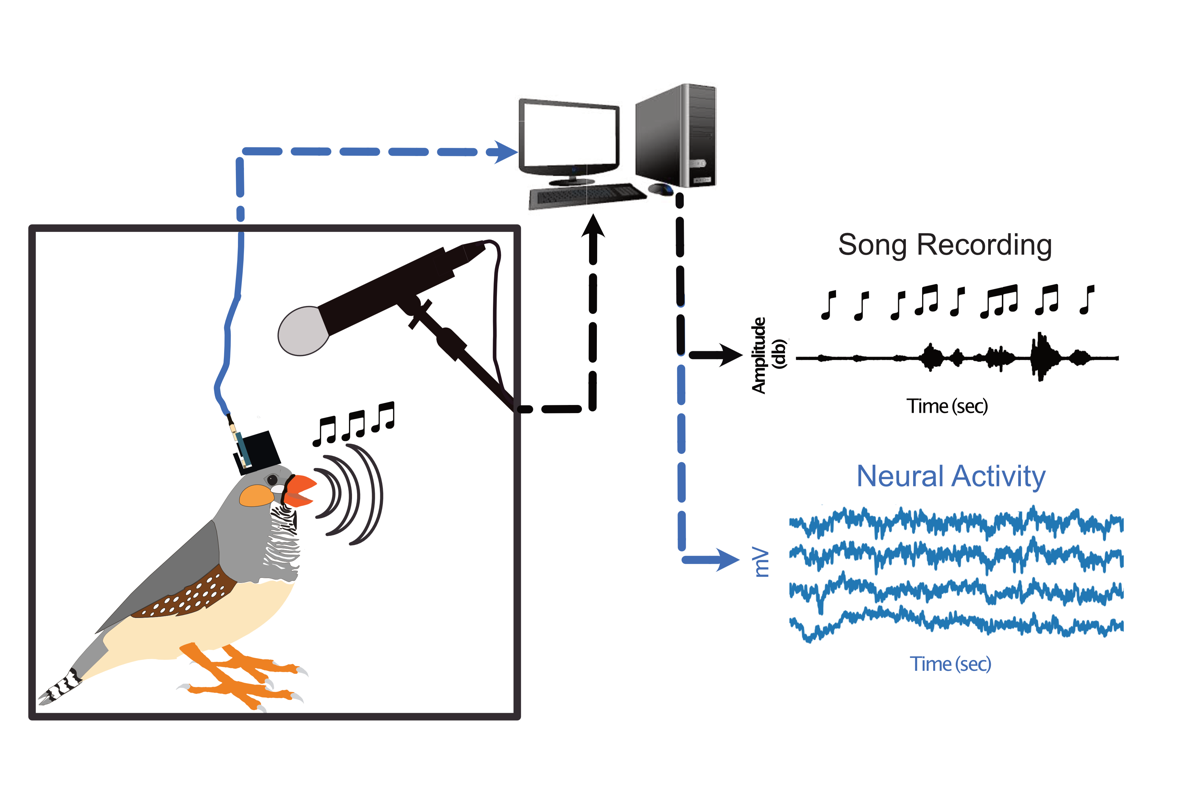
Neurally-Driven Vocal Prostheses for Songbirds
Daril B, Pablo T, Zeke A, Aparna SDevelopment of neural-activity driven speech prosthesis, using an avian model that includes Zebra finch and Starling birds. This project demands a continuous, in-parallel integration of systems engineering and the mapping algorithms that predict song intention from neural activity. The former is focused on designing an experimental setup that allows multi-channel, simultaneous recordings of neural activity from different brain nuclei along with vocal behavior during hours-long periods of time. The latter is focused on the characterization and modeling of the neural dynamics of vocal production, informing the design of statistical signal processing and machine learning algorithms that use neural activity to effectively predict song behavior.
Keywords: Vocal prosthesis, brain-machine interface, neural dynamics, free vocal behavior
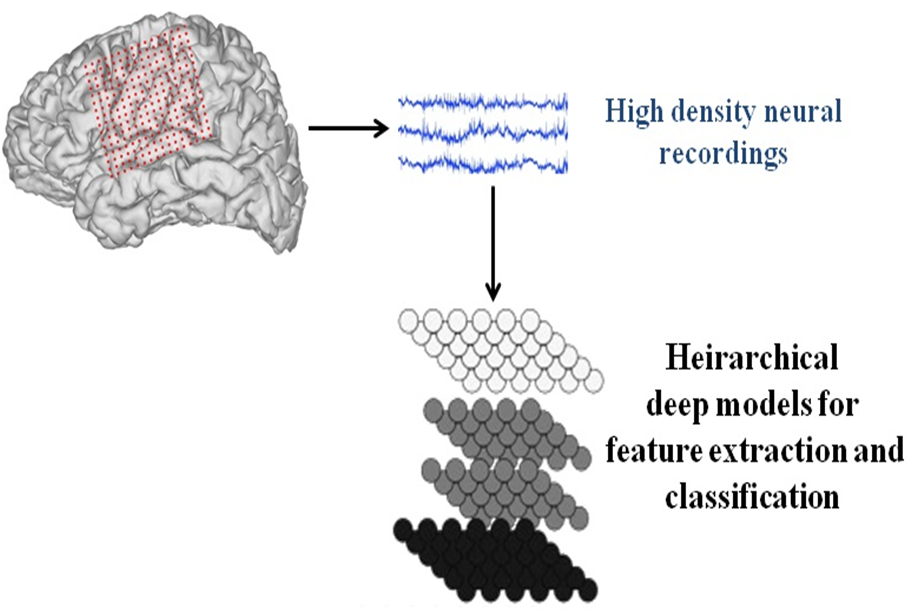
Using Deep Learning Techniques to Decode Neural Signals
Tejaswy P, Paolo G, Jiaming LPowers in specific frequency bands are features traditionally used in ECoG based BCIs. However, these hand picked features may not be optimal for classification tasks, which is critical to BCI system performance. We use deep learning architectures to simultaneously extract task relevant features and design classifiers. In addition, we explore deep learning methods to model non-stationarities and noises common to neural signals. By visualizing and understanding the intermediary layers learned by a trained network, we hope to understand the underlying non-linearities in neural signals.
Keywords: BCIs, deep learning
Past Projects
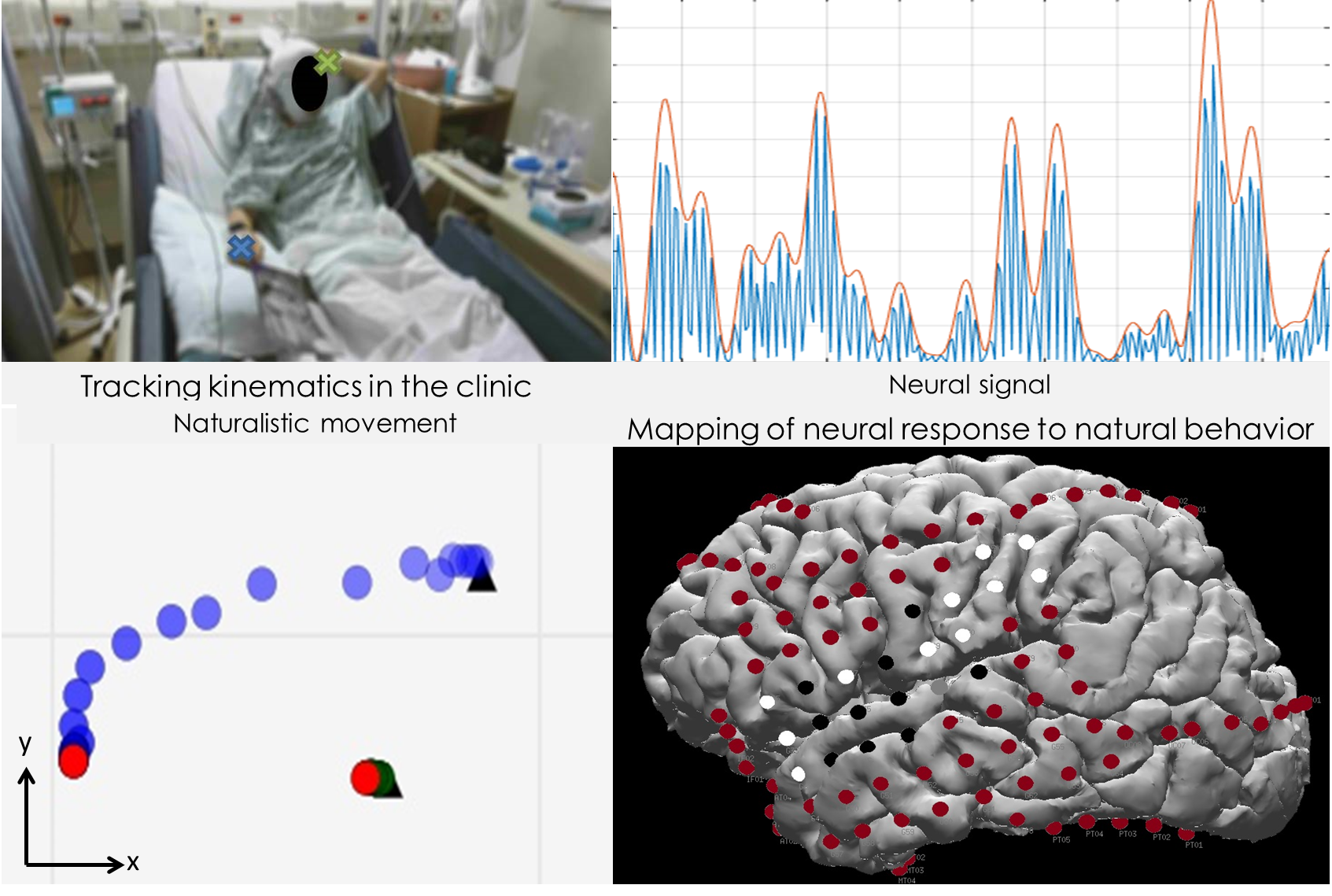
Free Behavior Analysis
Paolo G, Wahab A, Kenny CTo explore the relationship between neural activity and complex human behaviors, we simultaneously capture aspects of natural human behavior and neural signals from electrodes implanted across the cortex. This work pursues two paths - improved quantitative behavioral tracking, and the application of machine learning techniques to extract descriptive neural features.
Keywords: naturalistic behavior, generalized brain-machine interfaces, epilepsy monitoring
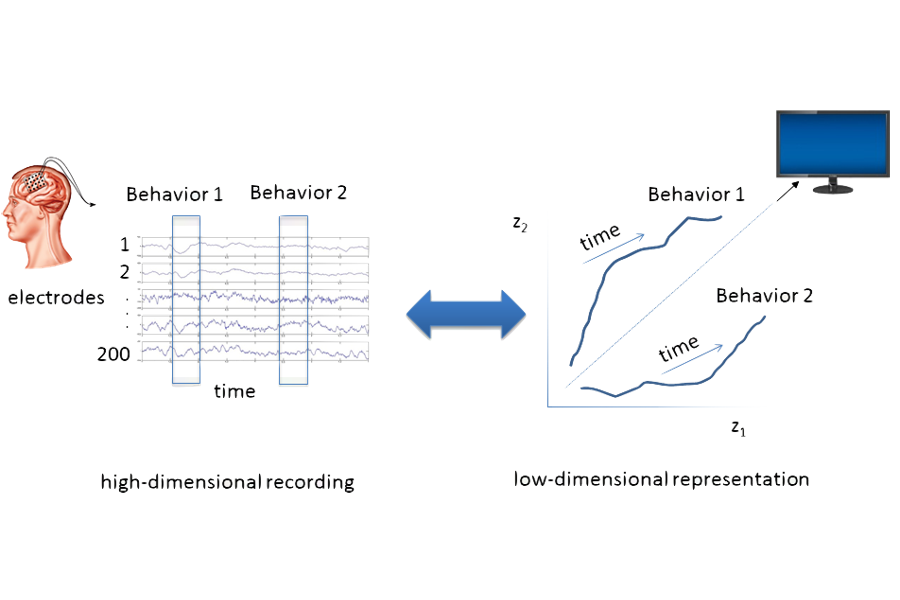
Neural Dynamics for Prosthesis Design
Akin OAs the number of channels in ECoG recording technologies increases into the hundreds and eventually thousands, our goal is to develop tools to analyze the dynamics of low-dimensional neural trajectories derived from high-dimensional ECoG recordings in order to identify robust neural features for neural prosthetic applications.
Keywords: ECoG, neural trajectories, low-dimensionality
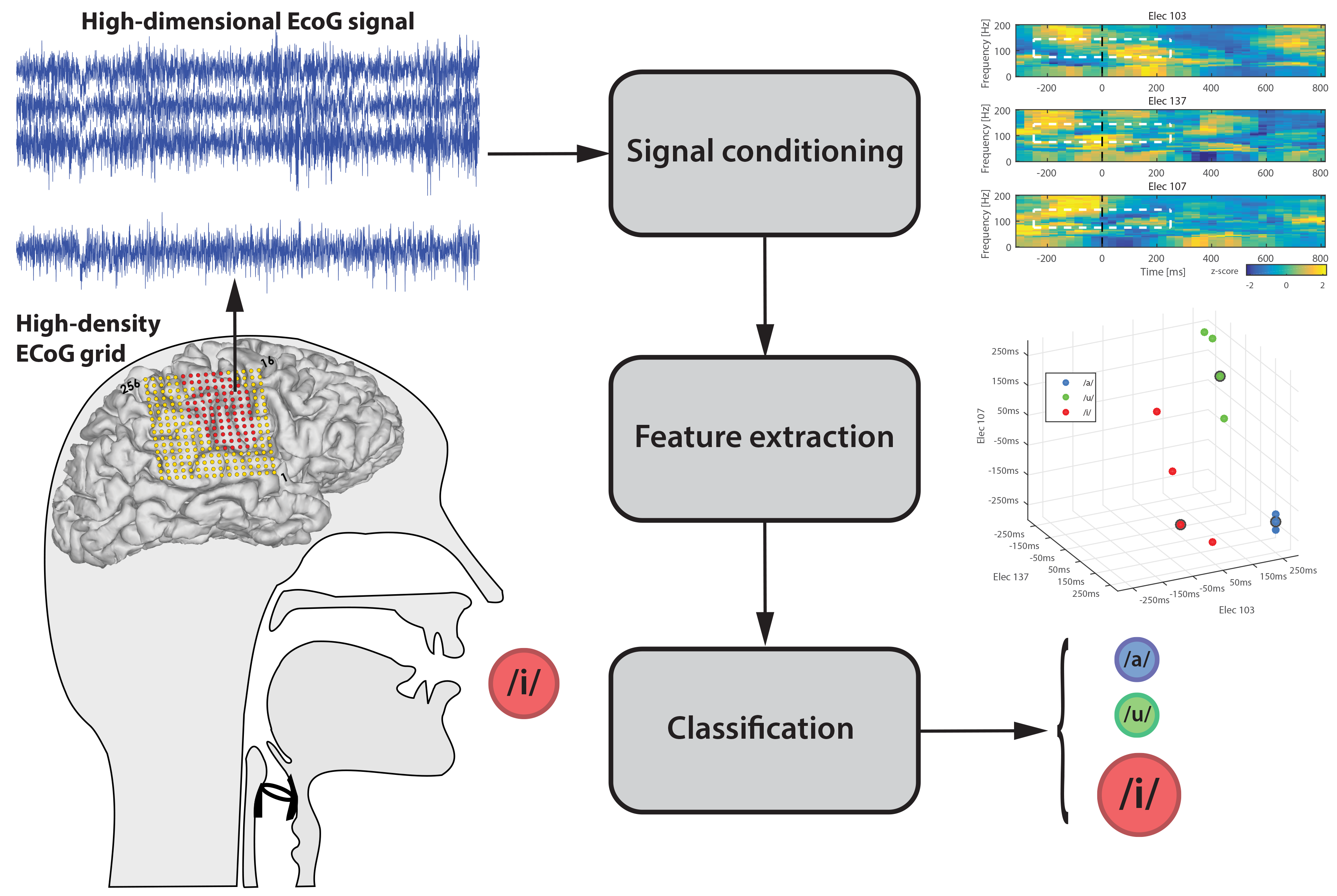
Real-time Speech Decoder
Werner J, Tejaswy PFor individuals with neurodegenerative disease, such as ALS, or injuries resulting in motor impairment, the ability to communicate and interact with the world can be severely limited. Our group seeks to develop a neurally-driven speech prosthesis that enables these individuals to communicate fluently.
Keywords: human speech prosthesis, brain-machine interfaces, neural decoding, statistical modeling
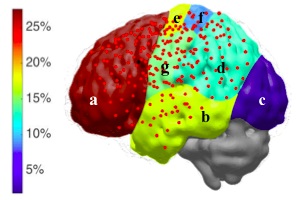
Online Decoding of ECoG Signals
Aashish P, Venkatesh E, Francis BCurrent communication prostheses often utilize static, computer-paced user interaction and decoding schemes to maximize communication accuracy or information transfer rate. By exploring loosened timing constraints while retaining communication decoding performance, our goal is to improve user interaction towards free-pace control.
Keywords: ECoG, brain-machine interfaces, neural decoding
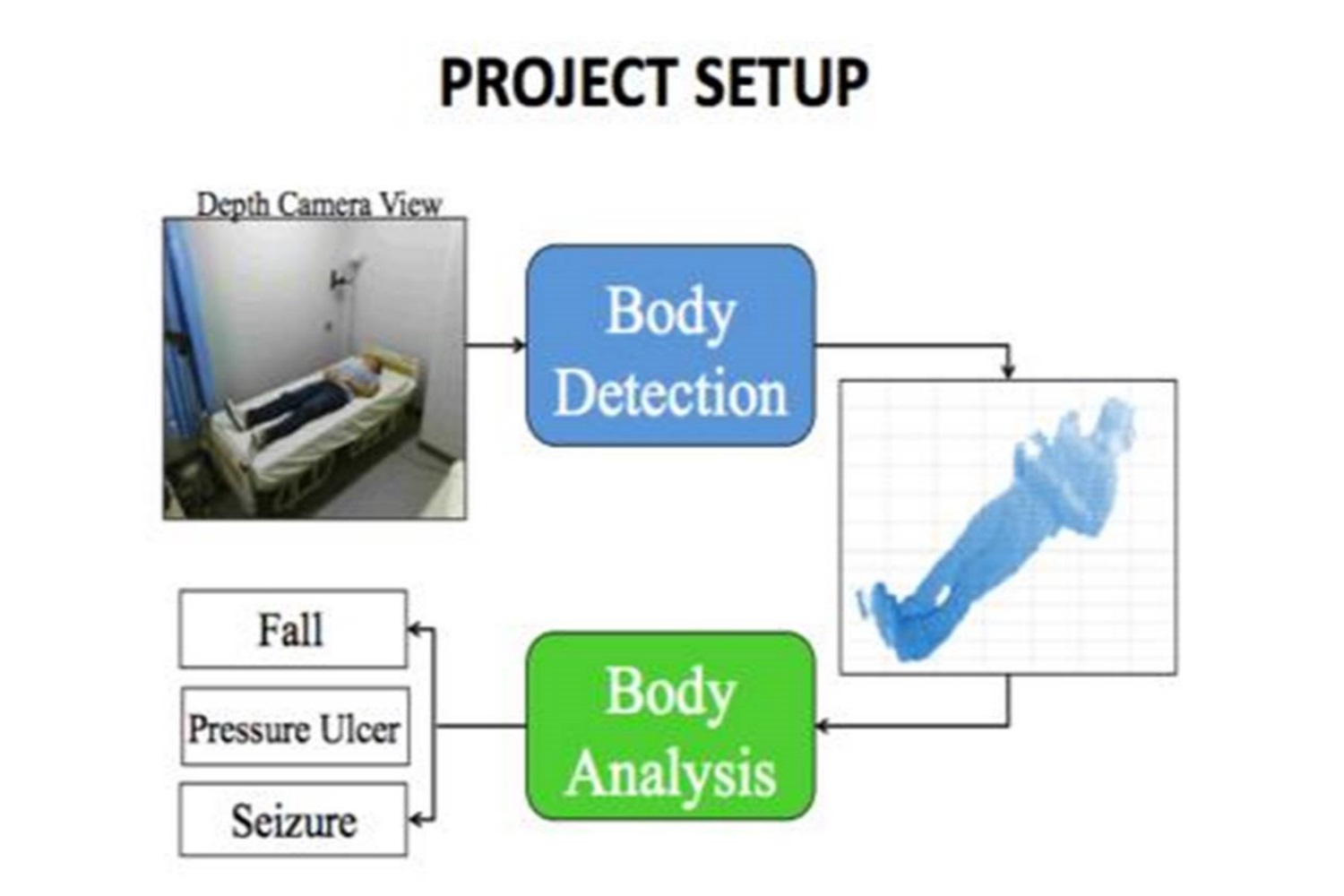
Hospital Patient Monitoring System
Francis BWe introduce a low-cost, minimally intrusive system for the detection of high-risk postures and movements for patients. Our current focus is on the detections of when a patient leaves the bed surface and when a patient moves body based upon detection of the bed surface and patient body analysis.
Keywords: image processing, computer vision, depth image frames
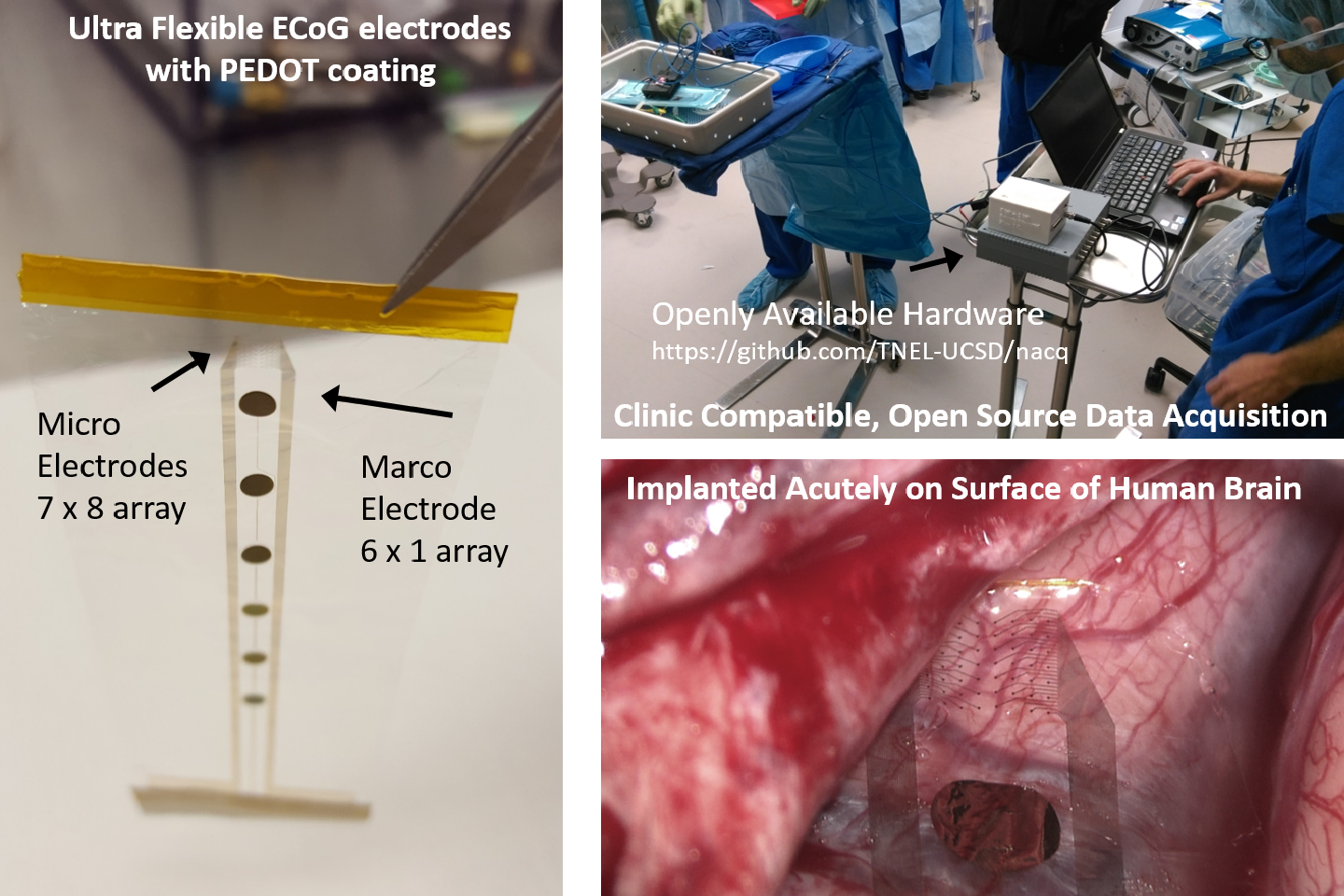
Clinical Translation of Novel Neural Interfaces
John H, Nick R, Hannah C, Andrew SNew arrays of electrodes used for electrocorticography (ECoG) are becoming smaller, more dense, and of lower impedance, making them an increasingly useful tool for neural recording. We combine animal and clinical work to advance ECoG recording capabilities for both chronic and acute applications.
Keywords: PEDOT, high density, flexible
Funding



Collaborators

Electrical & Computer Engineering | UC San Diego
Shadi Dayeh, Patrick Marcier
Shadi Dayeh, Patrick Marcier

Neurosciences | UC San Diego Health
David Barba, Sharona Ben-Haim, Jerry Shih
David Barba, Sharona Ben-Haim, Jerry Shih

Bioengineering | UC San Diego
Gert Cauwenberghs
Gert Cauwenberghs

Psychology | UC San Diego
Timothy Gentner
Timothy Gentner

Radiology, Neurosciences, Psychiatry | UC San Diego
Eric Halgren
Eric Halgren

Neural Prosthetics Translational Laboratory | Stanford
Krishna Shenoy
Krishna Shenoy
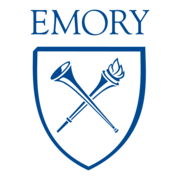
SNEL | Emory University / Georgia Tech
Chethan Pandarinath
Chethan Pandarinath
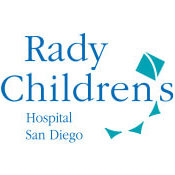
Comprehensive Epilepsy Center | Rady Children's Hospital
Sonya Wang, Shifteh Sattar, David Gonda, Mark Nespeca, Jeffrey Gold
Sonya Wang, Shifteh Sattar, David Gonda, Mark Nespeca, Jeffrey Gold
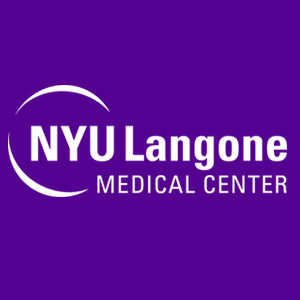
Comprehensive Epilepsy Center | NYU Langone Medical Center
Werner K Doyle, Orrin Devinsky, Daniel Friedman, Lucia Melloni, Thomas Thesen, Patricia Dugan
Werner K Doyle, Orrin Devinsky, Daniel Friedman, Lucia Melloni, Thomas Thesen, Patricia Dugan

